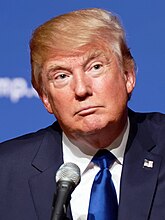Science in Fiction (#28): The Sandcastle Empire by Kayla Olson
Debut Kayla Olson Science Fiction Science in FictionWelcome to this month's Science in Fiction feature! Science in Fiction is a meme I created to showcase the wonderful aspects of science in Young Adult fiction novels. For more information and previous feature, check out the "Science in Fiction" tag!
This month, I'm featuring The Sandcastle Empire by Kayla Olson!
The Sandcastle Empire is one of the most highly anticipated YA science fiction debuts of 2017. It has already been optioned for film and will be produced by Leonardo DiCaprio! That is really cool, especially given how vocal DiCaprio has been lately, in terms of climate change and the environment.
I've read The Sandcastle Empire, and one of the things I loved about it was just how much climate change shaped the story. In this story, the world has been taken over by the Wolfpack, ordinary people who banded together to take over. The world had been ravaged by natural disasters, water scarcity, and other climate-change related catastrophes, and the Wolfpack took advantage of this.
Today, I'm going to talk about climate change/global warming's effect on coasts and islands.
We all know what climate change is, right? I've talked about climate change in previous posts of this feature, but in terms of other topics (like water scarcity). In a general sense, climate change is the long-term shift in weather patterns. Global warming is often used interchangeably with climate change, but they aren't quite the same; global warming is anthropogenic climate change (caused by humans).
Some of the effects of global warming include:
- Melting icecaps.
- Rising sea levels (caused by melting icecaps).
- Sinking of islands and low-lying lands.
- Extinction of marine species (caused by change in the ocean's ecosystem).
- Rise of invasive species.
- Increase in frequency of natural disasters such as hurricanes, floods, tsunamis, etc.
- Increase in intensity of those natural disasters.
- Scarcity of fresh water.
- Spread of diseases (like Zika and dengue).
- And many more...
I could go on and on, but I'll stop there. Check out this page on National Geographic website. I highly, highly do NOT recommend finding climate change or global warming information on any government website (like EPA or NOAA or NASA), under this administration. If you're ever curious about anything climate-change-related, do not only look at .gov sites! National Geographic is really reputable, or WWF, or the Sierra Club.
But to get back on track. One of the many terrifying effects of global warming is the disappearing of islands, due to rising sea levels. Many (and I mean many islands have sunk below the sea already). Ready for a list?
- Five islands of the Solomon Islands disappeared in 2016. Yes, these islands were very tiny. However, one island called Nuatambu had 25 families that were relocated when the island began to sink to an inhabitable point.
- Kiribati, with a fairly large popualtion, is sinking. This island has a massive population (over 100,000) and its government has been preparing the people to vacate the island for years.
- The Maldives is a very vocal island that is also sinking. The Maldives has committed itself to having a carbon-neutral economy by 2020. But this tiny island probably won't make a dent in the amount of carbon emission in this planet.
- The Marshall Islands are approximately one meter above sea level. That's... not a lot.
- Tuvalu is another Pacific island that is facing the consequences of global warming. Note how these tiny countries that contribute so little to global warming are the first to pay the price.
And it's not just tiny islands that will disappear. Coasts are extremely vulnerable to changes in sea level. Check out the following image from National Geographic:
Source: National Geographic
This is the situation in which all of the ice in the world melted, which would raise sea levels to the point where much of the East Coast would sink beneath the ocean. Florida is gone, all the way to to the Eastern Shore (in Maryland). Let that sink in (ha).
Rising sea levels is a huge problem, right now and definitely in the future. Small islands are suffering the consequences of global climate change, but large, carbon-producing nations like the United States really need to lead the way in reducing carbon emissions, and many other very necessary measures to mitigate global warming.
Of course, with the new USA administration, most of whom don't even believe in global warming or climate change, and who want to undo everything that the previous President did, this initiative is going to suffer many setbacks. This nightmare that I've described in this post could very well be reality by 2050.
Tell me: have you heard of this crisis (sinking islands, loss of coastal lands, etc.)? Do you live in a coastal area, or near the coast? (40% of the world's population does.) Would knowing all of this affect your way of thinking about the future?
Tell me: have you heard of this crisis (sinking islands, loss of coastal lands, etc.)? Do you live in a coastal area, or near the coast? (40% of the world's population does.) Would knowing all of this affect your way of thinking about the future?















